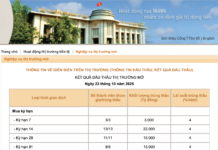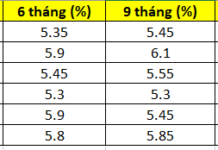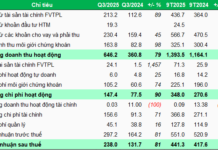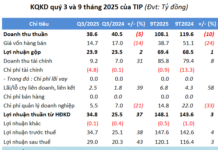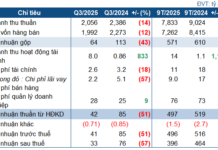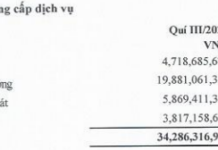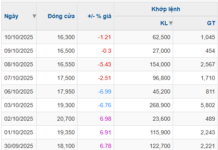The Non-Disclosure and Non-Compete Agreement (NDCA) can be agreed upon in an employment contract as a part of the employment contract or through a separate agreement. The NDCA usually includes a Non-Disclosure Agreement (NDA) and a Non-Compete Agreement (NCA). However, there are still many legal aspects, including the enforceability of the NCA, which still have different opinions even after the issuance of the Decision No. 69/2023/AL on the jurisdiction of Commercial Arbitration in resolving disputes related to NCA.
THE ESSENCE OF THE NON-COMPETE AGREEMENT
The NCA is an agreement in which the employee commits to not work for the employer’s competitors for a certain period of time after the termination of the employment contract.
The purpose of establishing the NCA is to protect the business secrets and technological know-how, which are intangible assets of the company regulated in the Intellectual Property Law 2005, amended and supplemented in 2009 (Article 3.2). It must be respected by all parties, including the employee. Companies are allowed by law to apply necessary measures, which may include the establishment of the NCA, to protect their business secrets and technological know-how (Article 84.3, Intellectual Property Law).
According to Article 21.2 of the Labour Code 2019, when the employee is directly involved in business secrets, technology secrets according to the provisions of the law, the employer has the right to agree in writing with the employee on the content, time limit for protecting business secrets, protecting technological secrets, rights and compensation in case of violation. This provision is also reflected in Circular No. 10/2020/TT-BLDTBXH dated November 12, 2020, of the Ministry of Labour, Invalids and Social Affairs.
However, currently, the legal aspects and enforceability of the NCA are not specifically regulated. Recently, the Supreme People’s Court issued Decision No. 69. The content of the decision is based on a case that occurred at the People’s Court of Ho Chi Minh City.
According to Decision No. 69, in 2015, Ms. Do Thi Mai T. signed an employment contract with Company R, in the position of Head of the Recruitment Department. The two parties had signed a non-compete agreement, which emphasized that if a dispute arose, it would be resolved through arbitration. In 2016, Ms. T. terminated the employment contract. Claiming that Ms. T. violated the non-compete agreement, Company R filed a lawsuit with the Vietnam International Arbitration Centre (VIAC) requesting more than 200 million VND in compensation.
VIAC accepted all of Company R’s demands. Therefore, Ms. T. submitted a petition to the People’s Court of Ho Chi Minh City to annul VIAC’s decision on the grounds that the dispute did not fall within the jurisdiction of the VIAC but had to be resolved by a court.
After consideration, the court determined, “The non-compete agreement is an independent agreement, and when a dispute arises, it falls within the jurisdiction of the arbitrator…”.
According to lawyers Nguyen Huy Hoang and Doan Thanh Binh, Bross & Partners Law Firm, who participated in the entire dispute resolution process as lawyers for the protection and authorized representation of Company R., both the NDA and NCA were established with the purpose of protecting the business secrets and technological know-how of the employer. When the NDA and NCA are violated, the court will have jurisdiction if the violation occurs during the validity period of the employment contract. Conversely, the jurisdiction will be with the court or commercial arbitrator (if agreed by the parties) if the violation of the NDA and NCA occurs after the termination of the employment contract.
Because the law has not specifically regulated this issue, the enforceability of the NCA still has different opinions. In practice, for the same type of NCA dispute, some courts recognize the enforceability of the NCA, while others consider the NCA void due to violation of the prohibitions of the law.
According to the lawyers, Decision No. 69 only has legal value in determining that the competent authority is the court or commercial arbitrator (if the parties agree) in the case of a similar NCA violation after the termination of the employment contract and does not determine the enforceability of the NCA. Therefore, the assessment of the enforceability of the NCA must be based on each specific case and the legal perspective of the competent authority, especially the court.
The lawyers also believe that the NCA has legal validity if this type of agreement is established “based on voluntary, autonomous commitment, and agreement” and is not considered void due to violation of the prohibitions of the law. However, the content of the NCA related to the employee’s right to work is not always considered a violation of the prohibitions of the law.
The evidence for this is the provisions of Article 35.1 of the 2013 Constitution: “Citizens have the right to work, choose a profession, employment, and workplace,” Article 10.1 of the Labour Code 2019 stipulates that “an employee can work for any employer and anywhere that is not prohibited by law.”
According to experts, these provisions are not prohibitions of the law because according to Article 123 of the 2015 Civil Code, “The prohibition of the law is provisions of the law that do not allow the subject to perform certain acts.” The above provisions are related to the employee’s right to work and choose a profession that other subjects must respect.
However, because it is a right, the employee with his/her full legal capacity can “renounce” the exercise of that right through unilateral legal acts or agreements with other subjects. This “renouncement” if it ensures the principles of free will and does not “impair the national or public interests, legitimate rights and interests of others,” must be respected by other subjects, including the judicial authorities.
Conversely, the employee has the right to demand the employer to pay a certain amount of money “to compensate for the employment opportunities restrictions” when the agreement and the establishment of the NCA are based on the principles of equality and good faith.
Therefore, the right to work is essentially the employee’s freedom of choice, and it is only when other subjects interfere, making that choice not free and voluntary, that it is considered a violation of the prohibitions of the law.
DISCUSSION ON THE ENFORCEABILITY OF THE NCA
Article 9.6 of the Employment Law 2013 stipulates the prohibition of impeding, causing difficulties, or damaging the legitimate rights and interests of the employee (and the employer). However, if the establishment of the employee’s NCA is voluntary and free, it is not reasonable to consider that the employer has impeded, caused difficulties, or harmed the employee…
https://postenp.phaha.vn/chi-tiet-toa-soan/tap-chi-kinh-te-viet-nam










